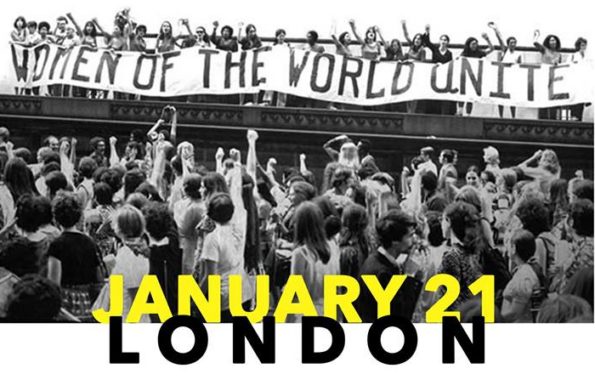Women's Views on News |
- We are off on holiday
- Snoopers’ charter is breaking the law
- No safe refuge in the UK for LGBT people
- Ask your MEP to help clean the air
| Posted: 22 Dec 2016 12:00 PM PST This views-on-news site is on holiday until 10 January 2017, but links to articles we consider of interest will, in the meantime, be posted on our facebook page. Sporadically. There are a lot of things to do – letters to MPs and MEPs for example – connected with many of the campaign posts on this site, so if you want something to do… Thank you so much for your interest and support this last year, and all your tweets, retweets and responses and reactions on facebook. We hope you have a suitably peaceful, wild and wonderful and happy Christmas and New Year’s holiday. And look forward to seeing you in 2017. Loins girded. |
| Snoopers’ charter is breaking the law Posted: 22 Dec 2016 11:46 AM PST
The UK government is breaking the law by collecting everyone’s internet and call data and accessing it with no independent sign-off and no suspicion of serious crime. In the first major post-Brexit judgment involving the UK, the Court of Justice of the European Union has backed Tom Watson MP, represented by rights campaign group Liberty, in a landmark challenge to the UK’s plans for government surveillance with a ruling that effectively means significant parts of the UK's new Investigatory Powers Act – or Snoopers’ Charter – are unlawful and must be changed. Judges at the Court of Justice have backed a challenge to the Data Retention and Investigatory Powers Act (DRIPA) – the temporary emergency law that covers state surveillance. The government is breaking the law by indiscriminately collecting the nation’s internet activity and phone records and letting hundreds of public bodies grant themselves access to these personal details with no suspicion of serious crime and no independent sign-off. DRIPA will expire on 31 December – but the government has since replicated and vastly expanded the same powers in its new flagship surveillance law, the Investigatory Powers Act, which passed in November. The ruling means that major parts of that new Act are in effect unlawful – and the government will need to urgently and fundamentally amend it. DRIPA forces communications companies to store every person's "communications data" – the who, what, when, where and how of every email, text, phone call, and internet communication, including those of lawyers, doctors, MPs and journalists. This data is subject to an extremely lax access regime, which lets hundreds of organisations and government agencies – from police forces to HMRC – grant themselves access for a wide range of reasons that have nothing to do with investigating serious crime. The 15 ECJ judges ruled this regime breaches British people's rights because it: Allows general and indiscriminate retention of all communications data; Does not restrict access to this data to the purpose of preventing and detecting precisely defined serious crime; Lets police and public bodies authorise their own access, instead of subjecting access requests to prior authorisation by a court or independent body; Does not provide for notification after the event to people whose data has been accessed; and Does not require that the data be kept within the European Union. Since this legal challenge was initially launched in 2014, the Investigatory Powers Act has not only re-legislated for the powers found unlawful today, but gone much further. The Act has dramatically expanded powers to gather data on the entire population, while maintaining the controversial lack of safeguards that resulted in this legal challenge. Under it, the state now also has access to every person's internet use – every website visited or app used – which service providers must generate and store for 12 months. This creates vast databases of deeply sensitive and revealing personal information which – at a time when companies and governments are under increasingly frequent attack from hackers – creates a goldmine for criminals and foreign spies. And this data can be accessed by dozens of public authorities, with no need for suspicion of criminality or prior sign-off from a judge or other independent official. The Investigatory Powers Act has also legalised other unprecedented bulk spying powers – including bulk hacking, interception of phone calls and emails on an industrial scale and collection of huge databases containing sensitive information on millions of people – which could integrate records such as Oyster card logs and Facebook back-ups. Liberty believes these indiscriminate powers are also unlawful and is preparing to challenge them in court. Martha Spurrier, Liberty's director, said the judgment "upholds the rights of ordinary British people not to have their personal lives spied on without good reason or an independent warrant. "The government must now make urgent changes to the Investigatory Powers Act to comply with this. "This is the first serious post-referendum test for our government's commitment to protecting human rights and the rule of law. "The UK may have voted to leave the EU – but we didn’t vote to abandon our rights and freedoms." And Tom Watson MP said this ruling showed it was "counter-productive to rush new laws through Parliament without a proper scrutiny. "At a time when we face a real and ever-present terrorist threat, the security forces may require access to personal information none of us would normally hand over. "That’s why it’s absolutely vital that proper safeguards are put in place to ensure this power is not abused, as it has been in the recent past. "Most of us can accept that our privacy may occasionally be compromised in the interests of keeping us safe, but no one would consent to giving the police or the government the power to arbitrarily seize our phone records or emails to use as they see fit. It’s for judges, not Ministers, to oversee these powers. "I’m pleased the court has upheld the earlier decision of the UK courts." |
| No safe refuge in the UK for LGBT people Posted: 22 Dec 2016 10:51 AM PST
Consensual sexual acts between same-sex adults are criminalised in 72 United Nations member states, and only 50 countries recognise trans people's rights to have their gender identity legally recognised. In countries that criminalise same-sex relationships, or fail to protect LGBT people, they face persecution, discrimination and violence. Or put another way: in many countries lesbian, gay, bi or trans people face significant levels of violence and discrimination; in 72 countries sex with someone of the same sex is still illegal, and in some of those countries, people face the death penalty because of who they love. People who face persecution on the basis of their real or perceived sexual orientation or gender identity can claim asylum in Britain, where 'UK Visas and Immigration', part of the Home Office, is responsible for managing asylum claims. But LGBT claimants have said they feel that they are treated like criminals when seeking refuge in Britain. Having experienced abuse, torture and persecution in their country of origin, many are placed in detention when they get to the UK, even though seeking asylum is not a crime. And they can find themselves placed in detention at any time during the course of their asylum-claiming process. Seeking asylum is not a crime; it is a right enshrined in the Universal Declaration of Human Rights. And yet over the past 20 years the scale of this kind of detention in the UK has expanded rapidly, as Paul Dillane from the UK Lesbian and Gay Immigration Group (UKLGIG) explained in the foreword of Stonewall's most recent report on this issue, No Safe Refuge. Until last year the UK was alone in Europe in operating the Detained Fast Track (DFT), a large-scale detained process where asylum claims were determined on a highly accelerated basis: in a matter of days. The UK has one of the largest detention estates in Europe, and detains more migrants and asylum seekers than the vast majority of other countries. Shockingly, it is also alone in detaining them indefinitely. Indefinitely. In July 2015, the High Court found that this process was 'systemically unfair and unlawful' – and the UK government has consistently stated its intention to introduce a new detaining procedure. In March 2015, the cross-party Parliamentary Inquiry into the Use of Immigration Detention delivered a damning verdict and reported that the UK detains far too many people for far too long. It recommended that the UK introduce a legal limit on the length of time that migrants can be detained as part of a radical overhaul of the entire detention system. The Detention Inquiry also expressed serious concerns about the hidden abuses against LGBT people. Between November 2015 and March 2016, Stonewall and UKLGIG conducted 22 in-depth interviews with lesbian, gay, bi and trans (LGBT) asylum seekers. Participants from 11 different countries in Asia, Africa, the Caribbean as well as Russia, were asked about their experience with staff and other detainees, their physical and emotional well-being while in detention and their access to legal and health services. The resulting report, No Safe Refuge, reflects the diverse experiences LGBT asylum seekers faced. The research also found that LGBT asylum seekers are particularly vulnerable and face significant disadvantages when detained. In detention they experienced discrimination and harassment from other detainees as well as from some members of staff, and the detention environment has had serious long-term effects on their mental and physical well-being. Those who were open about their sexual orientation or gender identity often experienced harassment and abuse from other detainees. And detention staff failed to protect LGBT asylum seekers from abuse. Staff often lack basic understanding of LGBT issues and even display discriminatory attitudes towards LGBT detainees. Some reported discrimination from staff. Many felt forced to hide their sexual orientation and gender identity while in detention as they feared bullying and discrimination. Trans asylum seekers face particular threats of violence in detention. They face particular danger in having to share bedrooms and communal showers with other detainees. One trans interviewee reported being placed in multiple male detention centres, even though she made it known that she identifies as a woman. And LGBT asylum seekers said they could not fairly pursue their legal claim while being detained. They are required to collect detailed evidence to 'prove' their sexual orientation and gender identity. Due to a lack of privacy and resources, LGBT asylum seekers are gravely disadvantaged when fulfilling these requirements while in detention. Detention has serious ill-effects on the mental health of LGBT claimants, as the challenging and unsafe detention environment causes constant stress and severe anxiety. As a result of this, depression, self-harm and suicide attempts were reported by most interviewees. Medical treatment fails to meet the particular needs of LGBT detainees. Lack of experience with LGBT issues and discriminatory attitudes from health care staff made it difficult for LGBT people to speak openly about their health concerns and receive the treatment and medication they required. Health care staff are not equipped to respond to the specific needs of trans people. Trans detainees often can not continue their transition, which leads not only to emotional distress but also has a direct effect on their mental and physical well-being. LGBT asylum seekers found it difficult to settle back into society after their experiences of detention. Many described experiencing severe mental health issues, isolation, discrimination and financial hardship post-detention. They are often excluded or feel unable to access diaspora or LGBT communities and therefore miss out on the support those community networks could provide. And as Ruth Hunt said in her foreword to the No Safe Refuge report, 'Stonewall is working with international activists so that people do not have to live with the daily threat of violence and discrimination. 'But while LGBT people are forced to seek asylum, we urgently need to address the system in the UK that's meant to support them. 'That means the Home Office working with civil society organisations, advocates and other influencers like the All Party Parliamentary Group on Global LGBT rights to address the serious concerns raised in this report. 'We need to ensure that when LGBT people reach the UK they are finally free to be themselves,' she said. Yes. |
| Ask your MEP to help clean the air Posted: 20 Dec 2016 01:34 PM PST
Europeans who are chronic respiratory patients, together with doctors, public health advocates and health and environmental organisations are asking Members of the European Parliament (MEPs) to take action on chronic respiratory diseases and sign written declaration 115/2016 on chronic respiratory diseases by 24 January 2017. The written declaration was presented to MEPs on 23 November, with a special action in the European Parliament in Strasbourg, organised by the European Federation of Allergy and Airways Diseases Patients' Associations (EFA), the European Respiratory Society (ERS) and the European Lung Foundation (ELF). MEPs from across the political spectrum took part in a free lung health check, and took action on mitigating chronic respiratory diseases by signing the declaration. Thanks you, all the MEPs who have already signed. This declaration presents environmental aspects as crucial to increase prevention and protect health. The declaration, which was tabled by 12 Members of the European Parliament, states: "to decrease the economic burden on national healthcare systems, and ensure a high level of protection of citizens' health, it is necessary to increase prevention and timely and accurate diagnosis by combating known risk factors such as smoking and environmental aspects." Chronic respiratory diseases account for more than 315,000 Europeans dying every year. Diseases such as respiratory allergy, asthma and chronic obstructive pulmonary disease (COPD) cost more than 300 Euros billion annually. Air pollution, both indoor and outdoor, has been linked to the development of these diseases, as well as to the exacerbation of the conditions of those already affected. The general goal of the declaration is in line with the Health and Environment Alliance's long-term strategic objective of having air quality levels in line with the recommendations from the World Health Organisation by 2020. The Health and Environment Alliance (HEAL) is a leading European not-for-profit organisation addressing how the environment affects health in the European Union (EU). It demonstrates how policy changes can help protect health and enhance people's quality of life. This initiative, launched by the European Federation of Allergy and Airways Diseases Patients' Associations (EFA), a member of HEAL, aims to motivate MEPs to take action on chronic respiratory diseases by signing the written declaration 115/2016 on chronic respiratory diseases. The campaign is supported by nine European organisations, which together represent more than 200 national associations in Europe: The European Federation of Allergy and Airways Diseases Patients' Association (EFA); Cystic Fibrosis Europe (CFS); The European Academy of Allergy and Clinical Immunology (EAACI); The European Network for Smoking and Tobacco Prevention (ENSP); The European Patients' Forum (EPF); The European Respiratory Society (ERS), and its foundation, the European Lung Foundation (ELF); The Health and Environment Alliance (HEAL); The International Primary Care Respiratory Group; (IPCRG); and Pulmonary Hypertension Europe (PHA) The adoption of a written declaration is never easy; since 2014, only nine per cent of proposed written declarations have been adopted by the European Parliament. Having a large number of MEPs committed to this declaration will be crucial for the success of the Written Declaration. This is why it needs your help. You can help these signatories spread the word. Take a look to see if your MEP is already a supporter. If not, in two clicks you can find your MEP at the European Parliament website. Then you can send an email to your MEP asking them to sign the written declaration 115/2016 on chronic respiratory diseases Or leave a comment on your MEP's facebook page asking them to sign written declaration 115/2016 on chronic respiratory diseases. Tweet your MEP with the #BreatheMission hashtag, asking them to sign written declaration 115/2016 on chronic respiratory diseases. If you get a response from an MEP, please let HEAL know by emailing here. Please also follow EFA on facebook and Twitter, and check out HEAL's facebook page and Twitter account to stay up to date on this campaign! Thanks. |
| You are subscribed to email updates from Women's Views on News. To stop receiving these emails, you may unsubscribe now. | Email delivery powered by Google |
| Google Inc., 1600 Amphitheatre Parkway, Mountain View, CA 94043, United States | |





 2016 is drawing rapidly to a close and again it has been a busy and challenging year for the industry.
2016 is drawing rapidly to a close and again it has been a busy and challenging year for the industry.





